Michael Laub / Remote Control Productions
Frankula (1998)
PHOTOGRAPHY / CREDITS / PRESS
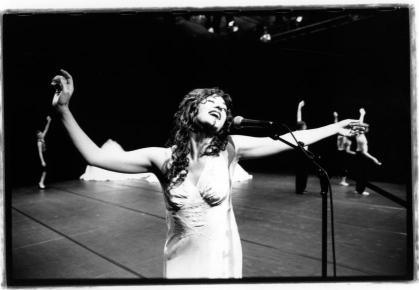
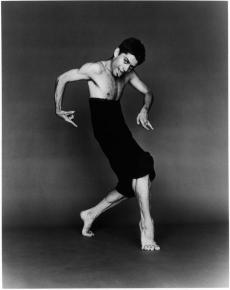
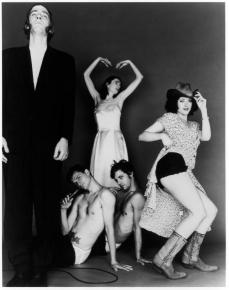
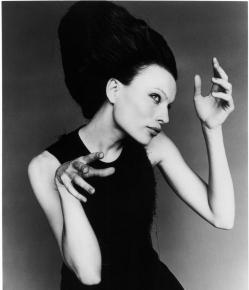
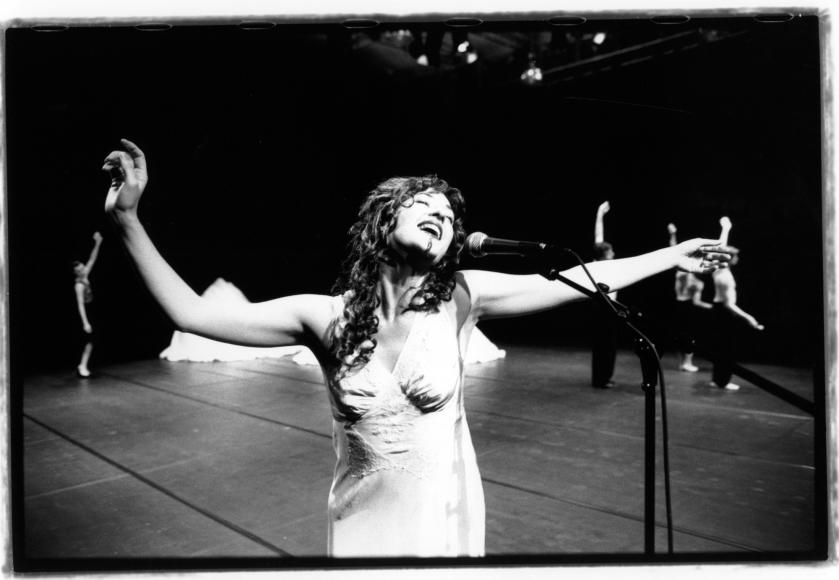
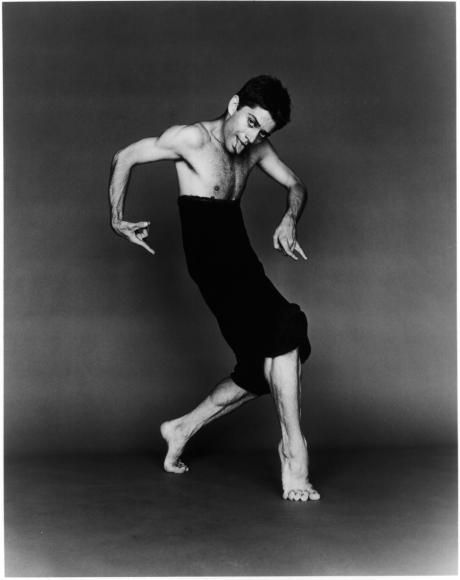
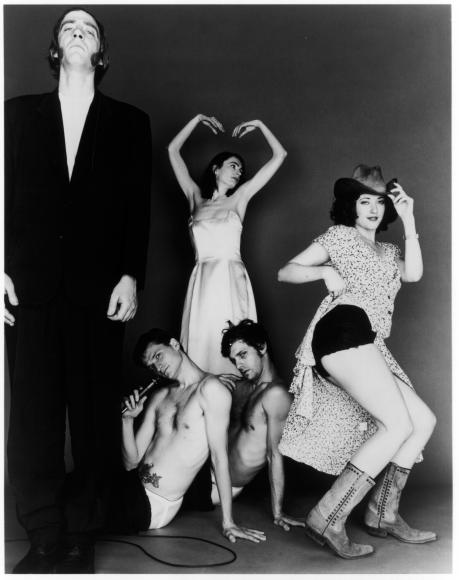
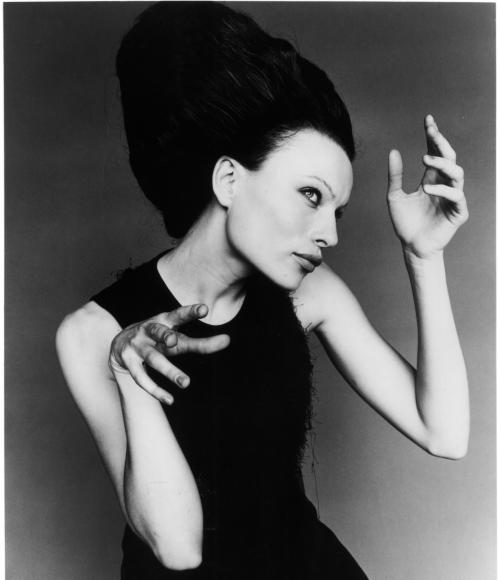
"That doctor is an asshole.
To relieve himself of his worries, the doctor took a constitutional into the mountains above lake Geneva, towards the glacier. There he spies the demon coming towards him faster than any mortal. The demon, D-A-E-M-O-N, confronts him. I want you to make me a wife. I need you to make someone as ugly as I am. When people behold my countenance they flee in terror. When they witness my face they scream in disgust. They shoot at me. They throw missiles. I want you to make me a wife of my own species: even if she doesn´t like me, at least she won´t be afraid of me. We will go together to the north Pole, and we will not hurt anyone. We will eat only nuts and berries and roots. Even my maker refuses to greet me, you fucking asshole." (Almond Grimsted)
"Where I come from, there is nothing but fish and the smell of fish. The men go out to sea and the women stay at home to look after the fish. ... Sometimes the women get depressed and take pills. And there wasn’t enough alcohol so the men would buy light beer and mix it with Ice Blue Aftershave. There was this little retarded man who used to pick up chewing gum from the street and put it in his mouth and he would always ask you if you had a cigarette." (Hildigunn Eydfinsdottir)
CREDITS
Directed by Michael Laub
Music Larry Steinbachek
Scenography Marina Abramovic
Lighting Gérard Maraite
Sound Jean Pierre Urbano
Costumes and Set assistance Niall Rea
Technical Director Gerard Maraite
Assistant Director Claudine Profitlich
Executive Producer Renata Petroni
Choreography and text Michael Laub in collaboration with the company
Performers Hildigunn Eydfinsdottir, Almon Grimsted, Eva Gustafsson, Anna Koch, Dennis O’Connor, Thomas J. F.ReaganIII, Karl Schappell, Erico Villanueva, Stephanie Weyman, Greg Zuccolo
Co-produced by Remote Control Productions (Tilburg), Hebbel Theater (Berlin), Grand Theatre (Groningen), TANZtheaterInternational ‘98 (Hanover), Two Moon (New York)
PRESS
Katja Schneider, Süddeutsche Zeitung, 8.9.1998
Following his ‘musical’ projects, to which the productions Rough, Solo, and Daniel and the Dancers belong, the Belgian director has turned to literature. Last year saw his play Planet Lulu, based on Wedekind; and now his piece inspired by Mary Shelley’s 1818 book ‘Frankenstein’ and Bram Stoker’s ‘Dracula’, published 80 years later. From Shelley’s book he has borrowed not the critique of the Enlightment or of rationality, but rather the theme of the Other, the Outcast, like the creature in the novel and Laub’s own ‘Daemon’, who becomes horrible because he is unhappy. From Stoker he has chosen the blood symbolism and the sexuality, both united in the figure of Lucy, bitten by Dracula and transformed into a nymphomaniac vampire in a trance. Literary fiction, TV films, TV itself supposedly personal experiences and the banal are interwoven in the speeches of the performers, who take position behind two downstage microphones and speak their texts with impressive presence, sometimes ecstatically, sometimes purposely awkwardly. The texts are (self-referential) quotes, just as Laub’s choreography consists of quotes; like the spoken parts, they unfold in clear groups and spatial patterns. All genres get mixed. Laub juggles them just as he juggles the stories, all rhythmically punctuated by the music of Larry Steinbachek. This meta-performance is formed from fragments, slivers of text and life (‘Where I come from, the men go fishing and the women stay home and take care of the fish’), completely without horror and quite detached. Suddenly the sad story of Shelley’s Justine, whom the monster prompts to murder her baby and who is hanged for it, is interchanged with Sade’s Justine, as related by the actress at the microphone – but not until she bares one breast. (...) Just as the monster in Mary Shelley’s novel is patched together from various body parts, so is Laub’s Frankula. For those who know the models, the result is an intelligent, thrilling puzzle of the highest aesthetic merit.
Katrin Bettina Müller, die tageszeitung, 1.8.1999
Michael Laub doesn’t pester us with the tabloid themes of organ-transplant commerce, cloning and artificial insemination. Nevertheless this context gives rise to the mixture of disgust, obsession, and sympathy with which the actors take on the story. Among the literary and cinematic precedents, they intersperse other legends, personal memories, and tales of perverse sexual encounters, among which a common theme runs: sexuality in them only becomes a theme at the cost of scanalization, gratification functions at best only for the components. Emotions and body no longer come together. Dislocation, distortion, estrangement: this is the area in which the actors and dancers of the group Remote Control excel. ... The external pictures are only a frame to set off the internal images; that alone comfortably distinguishes Remote Control from the power scenarios that attempt to act out everything.
Wolfgang Karlhuber, Salzburger Nachrichten, 15.7.1999
In the handsome black-and-white stage design by the Belgrade performance artist Marina Abramovic, the four women and six men of Remote Control compress literary and cinematic found materials into a well-tuned dramatic and choreographic whole, despite the extreme cut-up technique.
German Vogue, February 1999
Laub crafts his literary montage like a B-movie, a second-rate Hollywood film. He snips out the passages of the text that he likes, mixes them with snatches of film dialogue and commonplace phrases, lays them over the rhythms of composer Larry Steinbachek, and inserts choreographic fragments from disco, balletic en pointe, and TV dancing. On stage, designed by the Belgrade-born performance artist Marina Abramovic, each woman or man in the company my be transformed interchangeably into a vamp, an infantile woman, a ballerina, or a go-go girl, not to mention an ice skater or a long-distance runner.
Mathias Klein, Hannoversche Allgemeine Zeitung, 5.9.1998
In Frankula Laub has created a bizarrely wonderful evening that falls in the border zone between dance and theatre and that is striking for its unconventional means. This is just what a festival should be: against the current, apart from the usual, trying out something new.
Helmut Ploebst, Frankfurter Rundschau, 2.8.1999
Laub arranged building blocks created from the elements of American shows and musicals and staged little film clips on Marina Abramovic’s set. The dance is powerfully integrated as a marvelous acrobatic stunt, then as lascivious come-on, banal show tune, or expressive movement art. (...) The text, which is mostly delivered full-face to the audience, builds a narrative puzzle in which the representation of the corporeal is brought into play(...). Frankula takes as ist theme the monstreous in all of us, and Laub confesses his fascination with this monstreousness. When we think of Dr. Frankenstein’s monster, we imagine a body patched together from parts of corpses; in Frankula one such unique “I” longs for a similar “Thou”. The combination of material from Mary Shelley and Bram Stoker with motifs from de Sade’s Justine points to the mystery of sexuality as well.